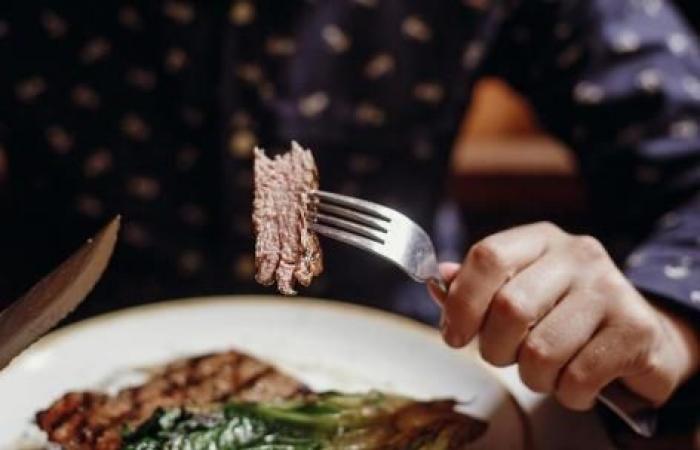THE ESSENTIAL
- High consumption of red meat, rich in protein and essential nutrients, is linked to an increased risk of type 2 diabetes according to a study published in The Lancet, carried out on 2 million participants in 20 countries.
- The link is attributed to factors such as saturated fats, BCAAs, glycotoxins from cooking and the impact on the gut microbiota.
- To limit these effects, it is recommended to reduce portions, include more legumes or fish, and prefer gentle cooking methods.
Red meat, long prized for its nutritional benefits (protein, B vitamins and essential minerals such as iron and zinc), is now being singled out for raising crucial questions for health. If its link with cardiovascular diseases and certain cancers is well established, a recent study, published in the journal The Lancet and spotted by The Conversationalso highlights its impact on the risk of type 2 diabetes.
With more than 450 million people affected worldwide, type 2 diabetes is a major public health issue. This disease occurs when the body produces insufficient insulin or does not use it properly, leading to high levels of glucose in the blood, recalls a press release. In the long term, this can cause serious complications, such as nerve, heart or foot problems.
Understanding type 2 diabetes
Conducted in 20 countries across the Americas, Europe, Southeast Asia and the Western Pacific, this study analyzed data from nearly two million participants. Researchers observed that high consumption of unprocessed red meat (such as beef, lamb and pork) and processed meat (bacon, salami, chorizo) significantly increased the risk of type 2 diabetes. Although the link with poultry consumption was also explored, this turned out to be weaker, and variable depending on the populations.
The link between red meat and type 2 diabetes remains complex. The high content of saturated fats, low intake of polyunsaturated fats and the presence of branched-chain amino acids (BCAAs) in animal proteins could impair insulin sensitivity. Additionally, certain compounds produced during high temperature cooking (glycotoxins) and the effects of heme iron on metabolism could worsen insulin resistance. Finally, the intestinal microbiota, influenced by nutrients such as choline and L-carnitine present in red meat, plays a role that is still poorly understood.
How to reduce risks?
You can reduce your consumption of red meat without completely giving it up, the researchers point out. Simple actions can be adopted, such as limiting portions, having a “meat-free day” per week or partially replacing meat with fish, legumes or vegetarian alternatives. And when you eat it, choose gentle cooking methods, such as stewing or steaming, to minimize the formation of harmful compounds.






